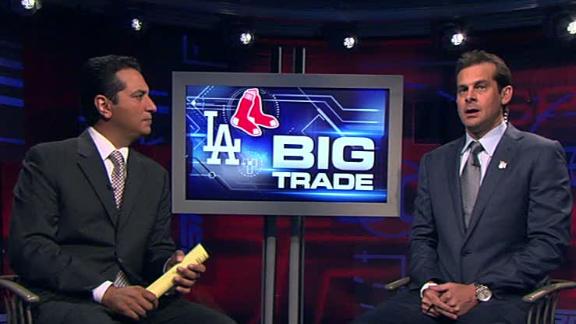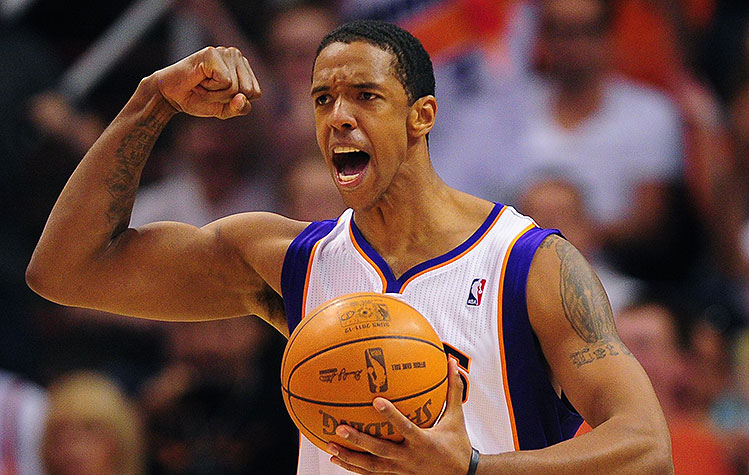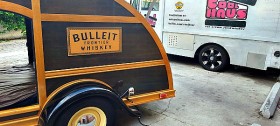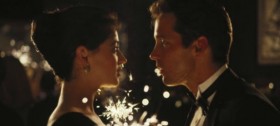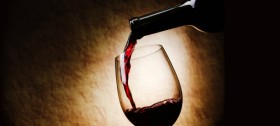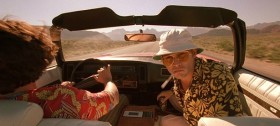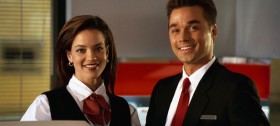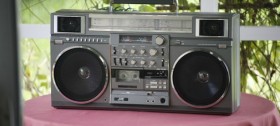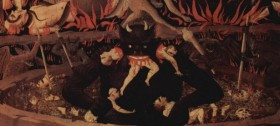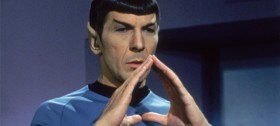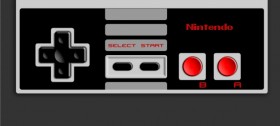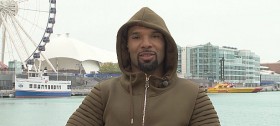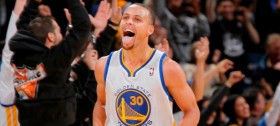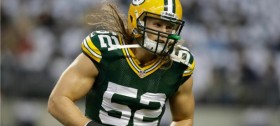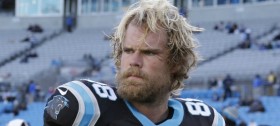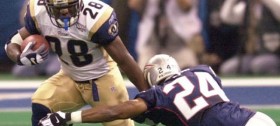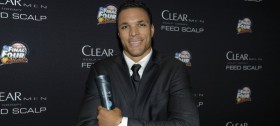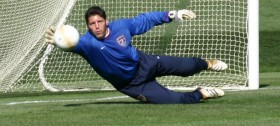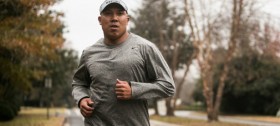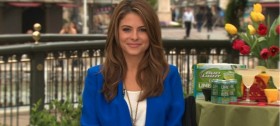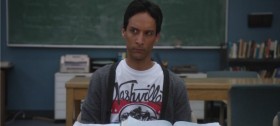Posts tagged CHD

Aaron Boone Interview
In February we celebrate Heart Awareness month. One of those weeks in that month we recognize and raise awareness for the disease known as Congenital Heart Defect (CHD). I didn’t know too much about the disease until my friend told me his daughter had CHD. Now I am trying to help by spreading information about it to others.
To help with that cause I had the great fortune to speak with former Major League Baseball player, Aaron Boone about CHD. He found out back in his college days that he had a heart defect. Even with that news he didn’t let that didn’t slow him down. He made it all the way to the big leagues and is in inspiration to those with CHD.
You might recognize him because he appears regularly on ESPN’s “Baseball Tonight”, which is celebrating its 25th season. You can also see Aaron as the color commentator of baseball games on ESPN as well as his “SportsCenter” coverage.
Art Eddy: Before we get into baseball and fatherhood I want to talk about CHD Awareness Week. You knew that you had CHD back in college, but you had to have heart surgery in 2009. When you heard the news that you needed an operation what was racing through your mind at that moment?
Aaron Boone: I knew that that day was out there someday. When they tell you that the time has come it hits you pretty hard. The reality of something major that you got to tackle and take on. It happened right in Spring Training when I was getting ready for the season so I didn’t expect it.
It definitely is a wakeup call. At the same time I was very eager to get it done. I had different injuries throughout my career obviously not related to the heart. I knew that this was a big one. I had a ton of confidence in my doctor, my surgeons, and all the people up in Stamford that did my procedure. I was very much at peace going in knowing I was in good hands and ultimately God’s hands.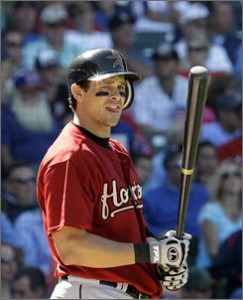
AE: After the surgery you came back to play in the league. You played a bit for the Astros. How good did it feel to be back in the game you love?
AB: Certainly heading in I was at peace if this was the end of my career I was going to be fine with that. That being said once I knew that I had the surgery and that things went well and the rehab process was going well they green lighted me to try and get back.
It was very gratifying. To see your body go through open heart surgery and all of that it entails. To see the weight loss. To really see your body return over a few months period and working hard at the gym to get back and play in the month of September was great. It was my going out party if you will. It was my only year in Houston, but I ended up playing with a lot of people that I am still close with that were so supportive.
It is times like that where you really appreciate friendships and people that are trying to enable you, help you, and support you in realizing your dream in getting back. The fact that I was able to do that was a little bit of closure for me in my career.
AE: What do you think people should know about CHD?
AB: With medicine and technology now, like many diseases in our society you can find out what is going on with your body at early stages of things. It can really help you fulfill your life and get the most out of your life just from early detection.
The fact that I knew about my situation starting in college and I knew about it for 20 years. I did my due diligence of getting my checkups. So doctors were on top of the growth of my heart for when I actually needed to have the surgeries. Maybe 20 to 40 years before that they wouldn’t be able to detect and it would have turned into a heart attack or a stroke. All the advancements and the great technology you can really prevent catastrophic situations by being aware, by getting checked out, by monitoring not only what is going on with your heart, but with your body.
AE: You played for a handful of teams in your career. How was the transition for you when you would start up with another team?
AB: It was a fun part of the game. For me I played my whole minor league career and then my first six, seven years in the big leagues with Cincinnati. When I started bouncing around to different teams I was already a veteran player so I knew a lot of people. I had a lot of relationships throughout the game.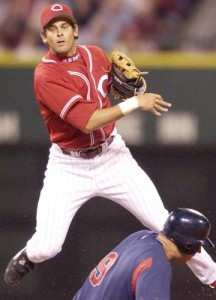
Anytime you would go to another team there was typically several guys that you were familiar with or had friendships with. For me it was always a new challenge, a new chapter of building something with a new team. It was something that I enjoyed to get the opportunity to get to play with several teams at the end of my career.
AE: What is your favorite memory from your playing days? Please don’t say the home run against the Boston Red Sox in 2003. I am a Sox fan and that still hurts. (Both laugh)
AB: Well it was pretty good, but you know 1999 we won 96 games with the Reds. We were a nice mix of young and up and coming players, me, Sean Casey, Pokey Reese, and Mike Cameron early on in our careers with veteran players. There was Barry Larkin, Pete Harnisch, and Greg Vaughan. It was such a really good blend of veteran players, younger players, and it all kind of came together. There were so many special moments that came together that year. Looking back my best year was playing in 1999 with the Reds.
AE: When I watch you on TV I love to hear the passion you have for the game. You do a great job of breaking the game down for the audience. How much fun do you have at ESPN being an analyst?
AB: Well thank you for that. It has been such an awesome way to really be continuing my career. Not being able to play at the highest of levels your body tells you that it is time for that. This is a way to stay involved like you said in a game that I love. It is a sport that I have a lot of passion for. It is a sport where I have a lot of ideas.
The fact that I get to go out there and have a platform to try and bring the game to the viewer from a player’s perspective is what I take a lot of pride in. I enjoy trying to convey the sport that I love in hopefully a simple manner.
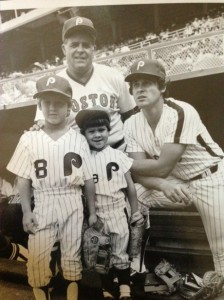 AE: You come from a long line of baseball players. Your grandfather played. Your dad and brother played. First off I think that is amazing for a family to have that type of baseball heritage. What advice did you get from your family as you entered the big leagues?
AE: You come from a long line of baseball players. Your grandfather played. Your dad and brother played. First off I think that is amazing for a family to have that type of baseball heritage. What advice did you get from your family as you entered the big leagues?
AB: My dad played for 19 years in the Major Leagues. He had such a tremendous work ethic that I think hopefully a little bit of that rubbed off on me. He always told me all the time, no matter what I did, do it because you love it and do it to the best of your ability. I always thought that if I could take those two thoughts in whatever path I choose in what I do each and every day that you are going to get a lot out of it. You are probably going to get the most out of your ability.
I always tried to have that simple perspective in even the most trying of times. When you are scuffling at your job or it is not going as smooth as you want, I always tried to get back to that foundation.
Feb 10th

Phoenix Suns Channing Frye Interview
Phoenix Suns power forward, Channing Frye couldn’t wait for this year’s NBA season to begin. Last year after a preseason physical, Channing found out that he had an enlarged heart. Frye was told he couldn’t play. It was tough news for him to digest, but he didn’t let that slow him down.
In his year hiatus from the NBA, Frye spent time with his family, did some traveling, and had time to do some personal reflection. Frye also started up the “One Heart” T-shirt campaign for his foundation, the Frye Family Foundation. Proceeds from the sale of these shirts will go to two charities, the Phoenix Children’s Hospital and Portland’s Providence “Play Smart” Youth Heart Screenings. Purchase the shirt here!
Now that the NBA season is in full swing Channing is happier than a kid at Christmas. He gets to be back with his teammates and play the game he loves. I was able to talk with Channing right before the season got underway. Channing spoke with me about his time off the court, his preparation for this year, and we even chatted about his sneaker collection.
Art Eddy: So the start of this season is really special for you since you didn’t know if you would be cleared to play since you found out that you had CHD last year. Can you put into words your feelings and emotions you have as you get ready to play this season?
Channing Frye: I think the first thing is accomplishment. There was some encouraging information of what I had at that time and was told I would be able to play again. I just felt in my heart and my soul that I wasn’t done yet.
I scoured the country to find the best doctors and information for what I have and here I am. The second thing is the camaraderie with my teammates. I love being a part of the Phoenix Suns organization. I know that a lot of people are saying that we are rebuilding, but for me I take a lot of pride being in this uniform. Being from Phoenix I really want to help the team out to do the best that we can.
A championship is a pretty high and lofty goal. Playoffs are pretty high and lofty also, but I think we can come out and compete every night. For me I want to be part of this rebuilding group.
AE: It must have been tough not playing last year. What did you do last year to help take your mind off of basketball?
CF: I traveled a lot. I did a lot of yoga. For me it was spending a lot of time with my family. It wasn’t so much taking my mind off of it, but it was doing things that in the long run it was doing things that could make me a healthy as I possibly could.
I think laughter is something that always helps. For me I have not been around my family that much consistently, so I was very excited. A lot of guys don’t know what it is like to be around their family all the time. With basketball we sometimes put ourselves first. To have a year where I put my family first and know that I am okay with that and I can do that as a man, a father, and a husband really gave me the confidence to come back and be comfortable with playing and doing the best I can on the court.
AE: Reading up on your team, your head coach Jeff Hornacek and the rest of the team have a lot of faith in you. 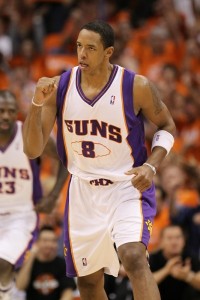 How much does that help you mentally as you prepare for this season?
How much does that help you mentally as you prepare for this season?
CF: That helps me a lot. I appreciate that Jeff says that out loud. I think he sees me day in and day out. It is tough getting back after taking a year off. For me, I have expectations of what I can do and how I can help out the team. I am just so hungry to help and be the player I know I can be. I want to be that now. As we all know everything is a day to day thing. Every day I try to do the best I can and get better.
AE: Are there any games in particular that you are looking forward to the most this season?
CF: Any game that I have to start. (Both laugh.) Anytime we will play Portland. I live up there and that was the last team I played for. I love the city of Portland. So for me anytime playing them and since I know those guys it will always be an exciting time for me.
AE: This is kind of a basketball related question. I am a sneakerhead and I want to know what pair of sneakers you play in on the court and which ones you rock off the court.
CF: I play in the Kobe VI’s. They just seem to fit my feet perfectly. I don’t know if I like the new ones too much. So Nike is going to send me some new shoes to try out.
At home I’ll be honest, it just depends on my outfit. I just got a shipment. I love the Jordan II’s. I love those. The Foamposites, like all those and I think I want to say the Jordan XIII’s.
AE: The ones with the hologram known as the “black panther” shoe right?
CF: Yeah. Those are the ones I rock pretty much all the time. Those and Vans.
AE: I love the work you are doing with your foundation. You have a great shirt called “One Heart” to help spread awareness about heart disease. Tell me a bit about how you started that up.
CF: The biggest thing that I have learned about my foundation is that is has always changes with me. I am always trying to work with other foundations. I am trying to do things that are fun for everyone. No offense to other foundations that do this, but going to kind of stiff events where people have to wear suits and begging people for money is not my style.
My foundation is about giving back. I think a lot of times no one looks at the young adults between the ages of 22 and 35. That is the age group where if they can start to make an impact, the older the get the more successful they get, they will be like I had fun doing this event I do want to give back. They might be like hey instead of giving back $50 I might give $500. Instead of giving $500 I might give $5,000.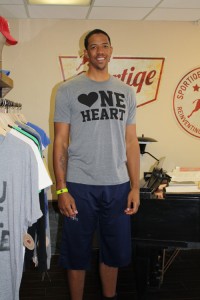
Other than last year I have done a kick ball tournament. I have done a golf tournament. This year with my “One Heart” shirt I started last year I took some time off because if I can’t put 100 percent into something I am not going to do it. It might sound weird, but I want to put my all into it.
Right now we are in talks with the Phoenix Children’s Hospital and in talks with another hospital out in Portland. So for everyone who buys a “One Heart” shirt it is going toward kids. It brings awareness to heart disease and help those kids with heart ailments.
AE: You also have a few great tattoos that give you inspiration. Tell me about the significance of those tattoos.
CF: One of is “Let go and Let God.” It is kind of dark. At that time I was transitioning between two places. I had never been traded. I was coming from a team that wasn’t that good and was going somewhere else. I was just an angel stepping forward. We all are angels. It is just a matter of if we are going to take a step forward and accept the responsibility of doing what is right and trying to live the right way. I wouldn’t say that I am living the right way 100 percent of the time, but I am just trying.
The other tattoo is just a set of stairs with a word on each step like selfishness, happiness, doubt, fear, and hate. These are all things that you have to get over. You have to get over yourself. You can’t always be right. You don’t always want to be right. Being wrong is going to actually help you become a better person. You look at any genius. Look at anyone who as ever invented something, they have one hundred wrongs to their one absolutely awesome right.
You have to get over doubt. You have to know in your heart that you are supposed to be out there and you are doing everything that you can. In my case it is to be the best player that you can be every day. You go down the line with fear and happiness. You can’t always do things that make you happy. Do I want to run and do sprints? Do I want to shoot 200 to 300 times a day? No, but I know that is what I need to do to get better. So for me every time that I look at a tattoo that I have I always know that there is a reason for it. I wouldn’t have put it there permanently if it wasn’t important to me.
Nov 4th
